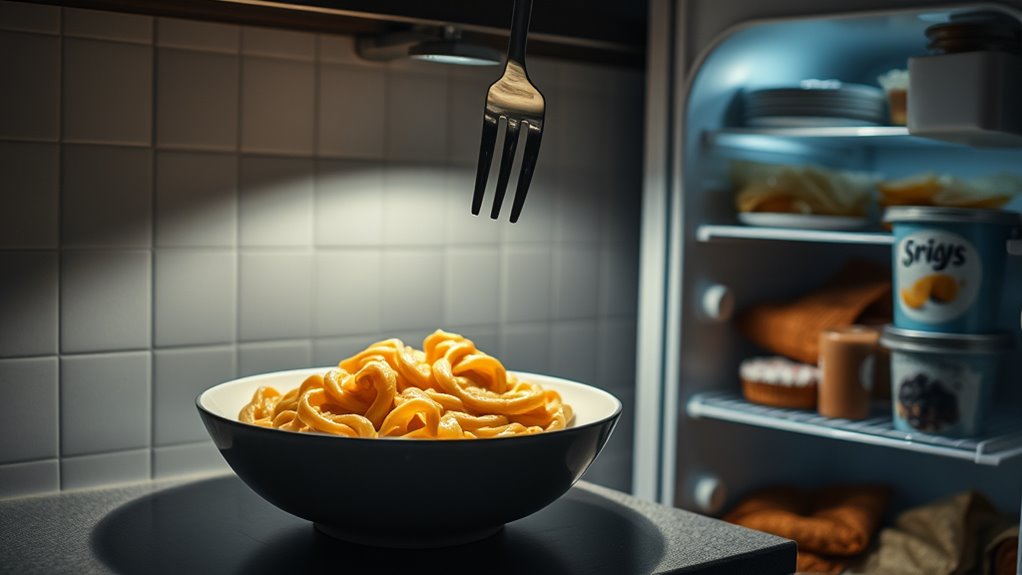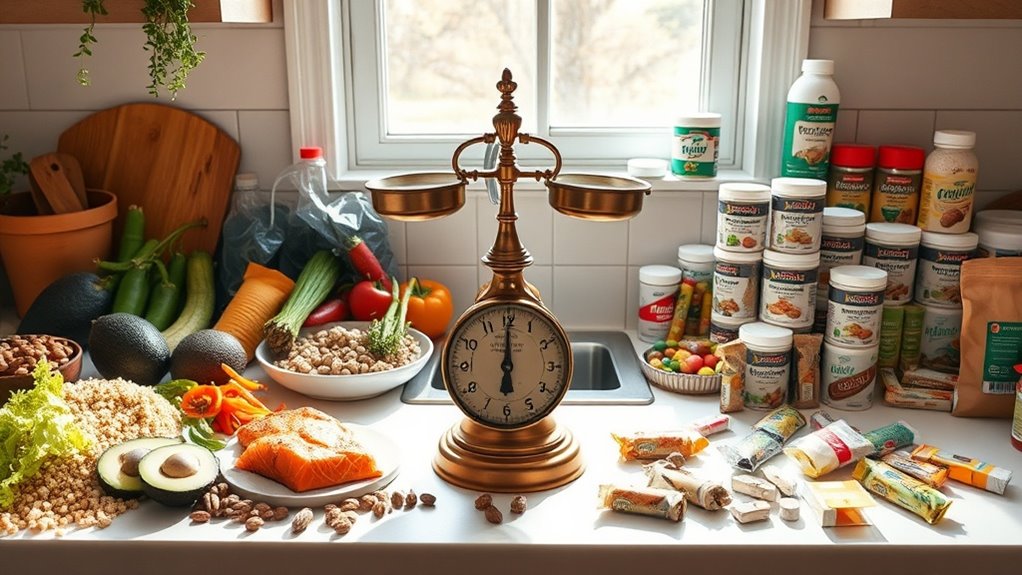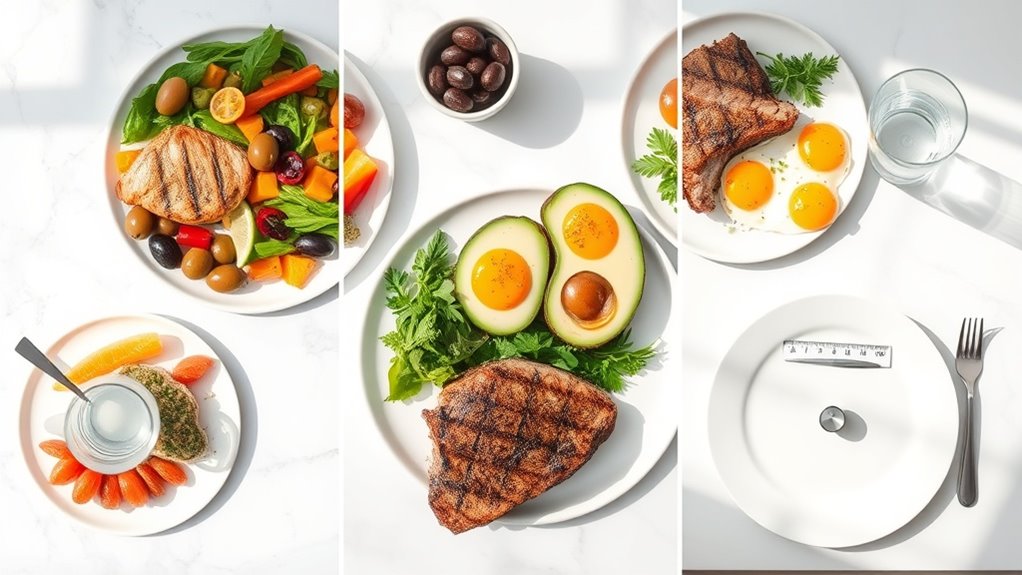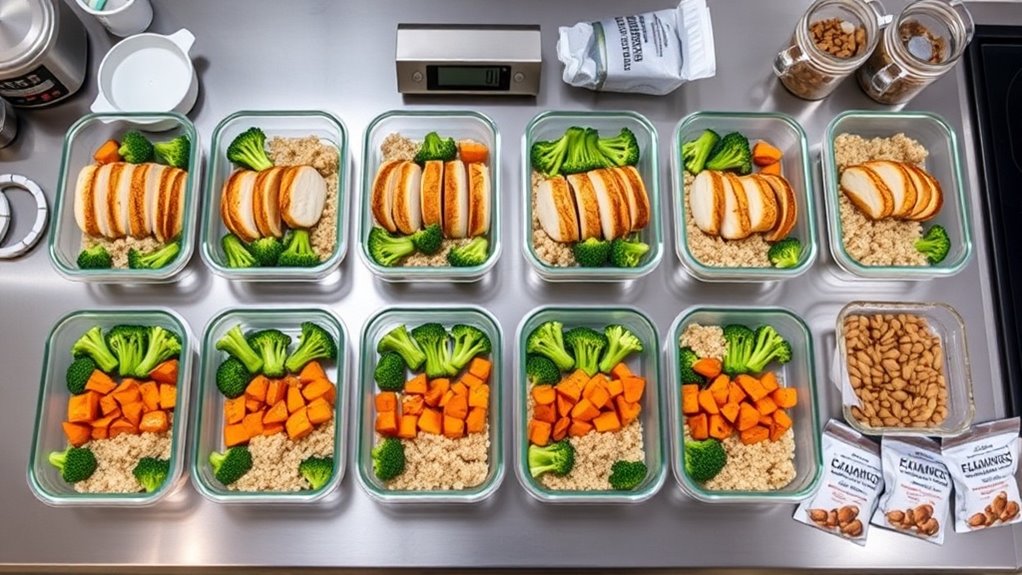Eating This Food at Night Could Be Ruining Your Diet!
You might think a late-night snack is harmless, but it could be undermining your diet. Those sugary treats and greasy foods can spike your blood sugar and leave you feeling sluggish the next day. Plus, heavy meals before bed can disrupt your sleep patterns. Curious about how these choices affect your metabolism and what healthier options exist? Let’s unpack the hidden impacts of nighttime eating and explore better habits.
The Impact of Late-Night Snacking on Your Metabolism
While you might enjoy the occasional late-night snack, it’s important to understand how it can affect your metabolism. Those late-night munchies can lead you to make choices that sabotage your health goals. Foods to avoid at night include anything high in fat or sugar, like chips and candy, which can slow down your metabolism.
Instead of feeling satisfied, you might wake up sluggish and regretful. When you indulge in these snacks, your body struggles to process them efficiently, impacting your energy levels and overall health. Additionally, lack of sleep can lead to hormonal imbalances that increase cravings for unhealthy foods, making late-night snacking even more problematic.
Plus, those late-night choices can disrupt your sleep, making it harder to stay focused and motivated throughout the day. Instead, consider healthier options that won’t weigh you down, like a small bowl of yogurt or a piece of fruit.
High-Sugar Foods: The Hidden Saboteurs
Late-night snacks often include high-sugar foods that can derail your diet more than you might realize. When you’re craving something sweet, it’s easy to reach for sugary treats, but these hidden saboteurs can spike your blood sugar and leave you feeling hungrier later. Additionally, being aware of liquid calories can help you make better choices and avoid unnecessary weight gain.
Here’s a quick look at common high-sugar snacks:
| Snack | Sugar Content (g) | Healthier Alternative |
|---|---|---|
| Chocolate Bar | 24 | Dark Chocolate (70%+) |
| Ice Cream | 28 | Greek Yogurt with Berries |
| Doughnuts | 22 | Whole Grain Toast with Nut Butter |
Opting for healthier choices helps keep your cravings in check and supports your diet. Remember, it’s not just about what you eat; it’s about how you feel afterwards. By making mindful decisions, you can enjoy your evenings without compromising your goals!
Fatty Foods: Why They Can Be a Bad Choice at Night
When you indulge in fatty foods at night, you might find it harder to sleep and feel sluggish the next day. Those rich, greasy meals can weigh you down, making it tough to enjoy a good night’s rest.
Instead of waking up refreshed, you could wake up feeling bloated or fatigued, which can throw off your whole day.
Fatty foods also tend to be high in calories, and eating them late can sabotage your weight loss efforts. Your body doesn’t burn calories as efficiently while you’re sleeping, so those extra calories can stick around longer than you’d like.
You want to feel your best and be part of the vibrant community around you. Choosing lighter options in the evening can help you stay energized and ready to connect with others the next day. Additionally, quality sleep is essential for regulating hunger-controlling hormones, making it even more important to avoid heavy meals at night.
The Role of Carbohydrates in Evening Cravings
After steering clear of heavy, fatty foods at night, you might still find yourself battling cravings, particularly for carbohydrates. Carbs have a unique way of calling to you, especially after a long day. They can provide that comforting, warm feeling you crave when winding down.
When your energy dips in the evening, your body often signals for quick sources of fuel—enter those delicious carbs.
However, indulging in late-night snacking can shift your diet off track. You may find yourself reaching for chips, cookies, or even pasta, which can lead to guilt and frustration. The key is understanding this urge.
Carbs can trigger the release of serotonin, making you feel relaxed. But that temporary satisfaction can lead to an endless cycle of cravings. Additionally, ignoring portion control can exacerbate the issue, leading to overeating during those late-night snacks.
Recognizing the role carbs play in your evening cravings helps you regain control and fosters a sense of community among those navigating similar challenges.
Healthier Snack Alternatives for Nighttime
Many people struggle with nighttime cravings, but opting for healthier snack alternatives can make a world of difference. Instead of reaching for those high-calorie chips or sweets, consider snacking on air-popped popcorn sprinkled with a little sea salt. It’s light, satisfying, and perfect for movie nights!
Greek yogurt topped with fresh berries is another great option; it’s creamy, delicious, and packed with protein.
If you’re in the mood for something crunchy, try baby carrots or cucumber slices with hummus. They’re refreshing and full of nutrients. You might also enjoy a handful of almonds or walnuts, which provide healthy fats and keep you feeling full longer. Eating high-fiber snacks before your main meal can also help manage cravings effectively.
Finding these healthier options can help you feel more in control of your choices and support your wellness journey. Remember, you’re not alone in this; many are making the switch to healthier nighttime snacks, and together, you can create positive habits!
Tips for Better Eating Habits Before Bedtime
To improve your eating habits before bedtime, focus on establishing a consistent routine that signals your body it’s time to wind down.
Start by setting a specific time to eat your last meal, ideally a few hours before you hit the sack. This gives your body time to digest and helps you avoid late-night cravings.
Choose lighter, healthier snacks if you feel hungry—think yogurt, fruit, or nuts. These options can satisfy your cravings without derailing your diet.
Also, try to limit distractions while eating; turning off screens can help you be more mindful about what you consume.
Staying hydrated is important too, but avoid heavy drinks just before bed. Instead, sip herbal tea or water earlier in the evening.
Finally, consider creating a bedtime ritual that includes relaxing activities, making it easier to transition away from food and towards restful sleep. Recognizing emotional triggers can also help you manage late-night snacking urges effectively.





